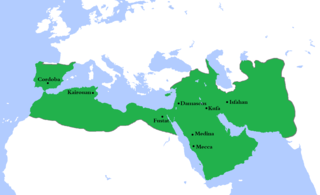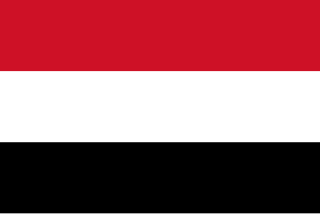Related Research Articles

Al-Qaeda is a militant Sunni Islamist multi-national organization founded in 1988 by Osama bin Laden, Abdullah Azzam, and several other Arab volunteers during the Soviet invasion of Afghanistan.

Alphonse Gabriel Capone, sometimes known by the nickname "Scarface", was an American gangster and businessman who attained notoriety during the Prohibition era as the co-founder and boss of the Chicago Outfit. His seven-year reign as crime boss ended when he was 33.

Osama bin Mohammed bin Awad bin Laden, also rendered Usama bin Ladin, was a founder of the pan-Islamic militant organization al-Qaeda. He was a Saudi Arabian until 1994, a member of the wealthy bin Laden family, and an ethnic Yemeni Kindite.

Sunni Islam is the largest denomination of Islam, followed by nearly 90% of the world's Muslims. Its name comes from the word sunnah, referring to the behaviour of the Islamic prophet Muhammad. The differences between Sunni and Shia Muslims arose from a disagreement over the succession to Muhammad and subsequently acquired broader political significance, as well as theological and juridical dimensions.

The Umayyad Caliphate, also spelt Omayyad, was the second of the four major caliphates established after the death of Muhammad. The caliphate was ruled by the Umayyad dynasty, hailing from Mecca. The third Caliph, Uthman ibn Affan, was a member of the Umayyad clan. The family established dynastic, hereditary rule with Muawiya ibn Abi Sufyan, long-time governor of Syria, who became the sixth Caliph after the end of the First Muslim Civil War in 661. After Mu'awiyah's death in 680, conflicts over the succession resulted in a Second Civil War and power eventually fell into the hands of Marwan I from another branch of the clan. Syria remained the Umayyads' main power base thereafter, and Damascus was their capital.

Riyadh is the capital and most populous city of Saudi Arabia, approximately 790 km (491 mi) North-east of Mecca. It is also the capital of Riyadh Province and belongs to the historical regions of Najd and Al-Yamama. It is situated in the centre of the Arabian Peninsula on a large plateau and home to more than six million people.

The United Arab Emirates, sometimes simply called the Emirates, is a country in Western Asia at the southeast end of the Arabian Peninsula on the Persian Gulf, bordering Oman to the east and Saudi Arabia to the south, as well as sharing maritime borders with Qatar to the west and Iran to the north. The sovereign constitutional monarchy is a federation of seven emirates consisting of Abu Dhabi, Ajman, Dubai, Fujairah, Ras Al Khaimah, Sharjah and Umm Al Quwain. Their boundaries are complex, with numerous enclaves within the various emirates. Each emirate is governed by a ruler; together, they jointly form the Federal Supreme Council. One of the rulers serves as the President of the United Arab Emirates. In 2013, the UAE's population was 9.2 million, of which 1.4 million are Emirati citizens and 7.8 million are expatriates.

Yemen , officially known as the Republic of Yemen, is a country at the southern end of the Arabian Peninsula in Western Asia. Yemen is the second-largest Arab sovereign state in the peninsula, occupying 527,970 square kilometres. The coastline stretches for about 2,000 kilometres. It is bordered by Saudi Arabia to the north, the Red Sea to the west, the Gulf of Aden and Guardafui Channel to the south, and the Arabian Sea and Oman to the east. Yemen's territory includes more than 200 islands.

A caliphate is an Islamic state under the leadership of an Islamic steward with the title of caliph, a person considered a religious successor to the Islamic prophet Muhammad and a leader of the entire ummah (community). Historically, the caliphates were polities based in Islam which developed into multi-ethnic trans-national empires. During the medieval period, three major caliphates succeeded each other: the Rashidun Caliphate (632–661), the Umayyad Caliphate (661–750) and the Abbasid Caliphate (750–1258). In the fourth major caliphate, the Ottoman Caliphate, the rulers of the Ottoman Empire claimed caliphal authority from 1517. During the history of Islam, a few other Muslim states, almost all hereditary monarchies, have claimed to be caliphates.
Islam is an Abrahamic monotheistic religion teaching that there is only one God (Allah), and that Muhammad is the messenger of God. It is the world's second-largest religion with over 1.8 billion followers or 24% of the world's population, most commonly known as Muslims. Muslims make up a majority of the population in 50 countries. Islam teaches that God is merciful, all-powerful, unique and has guided humankind through prophets, revealed scriptures and natural signs. The primary scriptures of Islam are the Quran, viewed by Muslims as the verbatim word of God, and the teachings and normative example of Muhammad.

The Mahdi is an eschatological redeemer of Islam who will appear and rule for five, seven, nine or nineteen years before the Day of Judgment and will rid the world of evil.

The Islamic State of Iraq and the Levant, also known as the Islamic State of Iraq and al-Sham, the Islamic State of Iraq and Syria, officially known as the Islamic State (IS) and by its Arabic language acronym Daesh, is a Salafi jihadist militant group and former unrecognised proto-state that follows a fundamentalist, Salafi doctrine of Sunni Islam. ISIL gained global prominence in early 2014 when it drove Iraqi government forces out of key cities in its Western Iraq offensive, followed by its capture of Mosul and the Sinjar massacre.

Alfred Matthew "Weird Al" Yankovic is an American singer-songwriter, record producer, satirist, film producer, and author. He is known for his humorous songs that make light of popular culture and often parody specific songs by contemporary musical acts, original songs that are style pastiches of the work of other acts, and polka medleys of several popular songs, featuring his favored instrument, the accordion.

The Syrian Civil War is an ongoing multi-sided armed conflict in Syria fought between the Ba'athist Syrian Arab Republic led by President Bashar al-Assad, along with domestic and foreign allies, and various domestic and foreign forces opposing both the Syrian government and each other in varying combinations.

Abū Bakr al-Baghdadi is the leader of the militant terrorist organisation ISIL. ISIL has been designated a terrorist organisation by the United Nations, European Union and many individual states, while al-Baghdadi is considered a Specially Designated Global Terrorist. In June 2014, he was elected by the majlis al-shura, representing the ahl al-hall wal-aqd of the Islamic State as their caliph.
Al Jazeera, also known as JSC, is a state-funded broadcaster in Doha, Qatar, owned by the Al Jazeera Media Network. Initially launched as an Arabic news and current-affairs satellite TV channel, Al Jazeera has since expanded into a network with several outlets, including the Internet and specialty television channels in multiple languages.
References
| This article about an Islamic studies book is a stub. You can help Wikipedia by expanding it. |